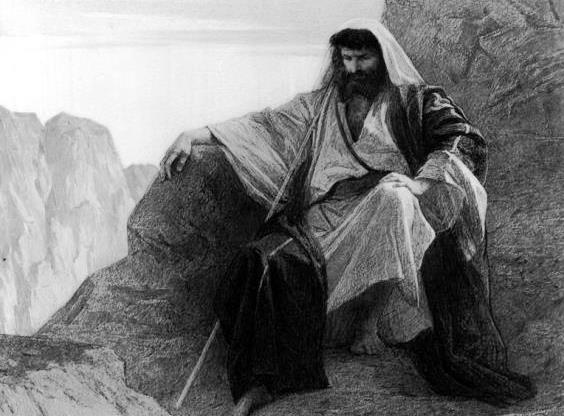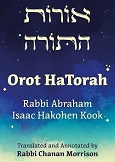
When God informed Moses that he was to bring the Jewish people out of Egypt, Moses did not accept the assignment happily. “Who am I that I should go to Pharaoh?” (Ex. 3:11)
What was Moses’ objection? The Midrash explains with the following parable:
“A king once married off his daughter, and he promised to employ a lady to wait on her. However, the king only provided the daughter with a lowly maidservant. His son-in-law complained, ‘Did you not promise to hire a lady to serve her?’
This is what Moses said to God: Master of the universe! When Jacob went down to Egypt, did You not say to him, “I will go down with you to Egypt and I will surely take you out”? But now You say, “I am sending you to Pharaoh”!” (Shemot Rabbah 3:4)
According to the Midrash, Moses objected to leading the Israelites because he felt that God had promised to do the job Himself. Did Moses really think that God would lead them out of Egypt without a human emissary?
Also, we need to examine God’s response to Moses:
“I will be with you. This will be your sign that I have sent you: when you bring the people out of Egypt, you will serve God on this mountain.” (Ex. 3:12)
How does serving God on Mount Sinai prove that God Himself will lead the people? How did it allay Moses’ fears about his mission?
Two Types of Leaders
In general, we may distinguish between two types of successful leaders. The first category are leaders who excel in organizational skills. The leader himself does not contribute or add to the nation’s accomplishments, but he knows how to bring together the various abilities and talents dispersed amongst the people. By marshalling together their diverse strengths, such a leader gently steers the people to their destiny.
The second type of leader is more than just an efficient organizer. He uses his own special gifts to inspire the people to greater aspirations. Such a leader is not merely an instrument of heaven to rule the people; he is a dynamic individual, blessed with extraordinary wisdom and holiness, capable of uplifting the people to a level that they could not reach on the basis of their own merits.
These two types of leaders induce change in different ways. The competent leader gradually leads his people to their national goals, step-by-step. The charismatic leader, on the other hand, inspires the people to attain new heights in a sudden and dramatic fashion.
Moses’ Complaint
This distinction allows us to understand Moses’ objection. Moses probably recognized that he was destined to lead the Jewish people. His miraculous rescue as a baby and his extraordinary childhood growing up in Pharaoh’s palace indicated that Moses was meant to lead his people.
In his humility, however, Moses placed himself in the first category of leaders — those without any special qualities of their own, just the willingness to organize and govern the people. God, however, had promised a dramatic redemption, a quantum leap in the people’s spiritual elevation, when He said “I will surely raise up” (Gen. 46:4). Clearly, God had intended that a charismatic leader would inspire and ennoble the people.
Like the son-in-law in the parable, Moses objected to God’s choice of leader. The King had promised a lady of high caliber — a great and inspiring leader. But He had only provided a lowly maid-servant - Moses, a competent but unremarkable public servant.
Therefore, God explained to Moses, “I will be with you.” With the sublime powers that I bestow upon you, you will be able to uplift the people to a level beyond their current reach. In this way, I will fulfill My promise to them.
And God continued: the proof that you will be the catalyst for profound change is that the people will stand on Mount Sinai. In order to merit receiving the Torah, the Jewish people will need to be on the highest spiritual level. If that was not the case, the Torah could have been revealed to an earlier generation.
The fact that the Jewish people would stand at Mount Sinai was proof that Moses would in fact be the second type of leader, dramatically readying them for this historic moment.
Ready for the Priesthood and the Kingship
This explanation helps us understand a difficult Midrash. When God first revealed Himself to Moses in the burning bush, Moses responded, 'Hineini' — “Here I am.” Or perhaps, “I am ready.”
The Midrash explains that Moses was saying, “I am ready for the priesthood and the kingship.” These aspirations, however, were not to be. The priesthood had already been designated to Aaron, and the kingship to David. Nevertheless, Moses temporarily merited both of these high positions. He served as High Priest during the seven days of installment of the priests, and ruled as king during his lifetime (Shemot Rabbah 2:6).
How can we resolve this Midrash — practically a demand for prestige and power — with the self-effacing humility so apparent in the Torah’s depiction of Moses?
Furthermore, the Sages taught that “When God bestows greatness on an individual, He gives it to him and his descendants for all generations” (Megillah 13b). Why did Moses only merit these positions temporarily, for himself and not for his descendants?
As we explained earlier, Moses considered himself a suitable candidate to govern the Jewish people. His refusal to bring the Israelites out of Egypt stemmed from his assessment that he was not the great leader who could fulfill God’s promise to uplift the nation. As a competent leader, however, Moses felt that he was a suitable candidate to initiate a dynasty of kings or high priests, and thus gradually elevate the people over the generations.
In fact, Moses was the revolutionary leader who wrought radical change on the Jewish people. Accordingly, his dynamic leadership was short and dramatic, lasting only during his lifetime.
(Adapted from Midbar Shur, pp. 281-289)





